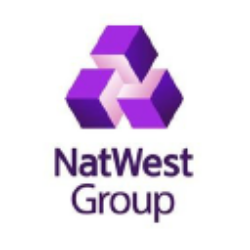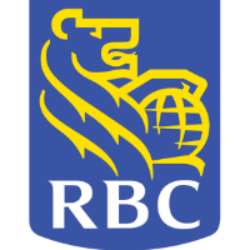CS

Credit Suisse Group AG
CS
(1.5)0,89 USD
0% ROA
-16.4% ROE
-0.42x PER
2.998.345.201,18 USD
0% DER
0% Yield
-53.1% NPM
Credit Suisse Group AG Stock Analysis
Credit Suisse Group AG Fundamental Analysis
Fundamental analysis in stock investing is like studying the foundation of a house before buying it. It involves looking at a company's financial health, like its earnings, assets, and debts, to determine if it's a good investment based on its fundamental strength and potential for growth.
| # | Analysis | Rating |
|---|---|---|
| 1 |
PBV
The stock's low PBV ratio (0x) suggests it's undervalued, making it an attractive opportunity for investors. |
|
| 2 |
DER
The stock has a low debt to equity ratio (0%), which means it has a small amount of debt compared to the ownership it holds |
|
| 3 |
Dividend
With a solid track record of dividend payments over the past five years, the company has established itself as a dependable choice for investors seeking consistent income. |
|
| 4 |
ROE
The stock's ROE indicates a negative return (-21.77%) on shareholders' equity, suggesting poor financial performance. |
|
| 5 |
ROA
The stock's ROA (0%) indicates that it's not effectively utilizing its assets to generate profits, making it a less favorable option to invest and earn consistent returns. |
|
| 6 |
Revenue Growth
Company's revenue has stayed stagnant, showing no signs of improvement and making it a less favorable choice. |
|
| 7 |
Net Profit Growth
Despite the passage of five years, this company's net profit has not shown any improvement, highlighting a lack of growth and making it a less appealing investment prospect. |
|
| 8 |
Assets Growth
Company's revenue has remained stagnant over the past three years, indicating a lack of growth and making it a less favorable option. |
|
| 9 |
Graham Number
The company's Graham number suggests that its stock price is overestimated, implying that it may not be a promising investment opportunity. |
|
| 10 |
Dividend Growth
Investors should note the company's stagnant dividend growth over the past three years, indicating limited profitability and potentially diminishing returns. |
|
| 11 |
Buffet Intrinsic Value
The company's stock shows signs of being overvalued (-2) according to Warren Buffett's formula, indicating a potential downside as its market price exceeds its estimated intrinsic value. |
Credit Suisse Group AG Technical Analysis
Technical analysis in stock investing is like reading the patterns on a weather map to predict future weather conditions. It involves studying past stock price movements and trading volumes to make predictions about where a stock's price might go next, without necessarily looking at the company's financial health.
| # | Analysis | Recommendation |
|---|---|---|
| 1 | Awesome Oscillator | Hold |
| 2 | MACD | Buy |
| 3 | RSI | Hold |
| 4 | Stoch RSI | Sell |
Credit Suisse Group AG Price Chart
Financial Statements
Financial statements are like report cards for companies. They show how much money a company makes (income statement), what it owns and owes (balance sheet), and where it spends its money (cash flow statement), helping stock investors understand if a company is healthy and worth investing in.
Income Statements
An income statement for a company is like a scoreboard for its profits and losses. It shows how much money the company made (revenue) and how much it spent to make that money (expenses), helping stock investors see if a company is making a profit or not.
Revenue in stock investing is the total amount of money a company earns from its sales, and it's a key factor that investors consider to assess a company's financial performance and growth potential.
| Year | Revenue | Growth |
|---|---|---|
| 2000 | 66.761.973.500 | |
| 2001 | 75.664.155.120 | 11.77% |
| 2002 | 70.656.113.320 | -7.09% |
| 2003 | 51.474.706.400 | -37.26% |
| 2004 | 53.940.686.800 | 4.57% |
| 2005 | 60.774.282.000 | 11.24% |
| 2006 | 36.185.000.000 | -67.95% |
| 2007 | 36.868.000.000 | 1.85% |
| 2008 | 9.750.000.000 | -278.13% |
| 2009 | 31.676.000.000 | 69.22% |
| 2010 | 29.205.000.000 | -8.46% |
| 2011 | 24.132.000.000 | -21.02% |
| 2012 | 21.583.000.000 | -11.81% |
| 2013 | 23.837.000.000 | 9.46% |
| 2014 | 24.037.000.000 | 0.83% |
| 2015 | 21.766.000.000 | -10.43% |
| 2016 | 17.741.000.000 | -22.69% |
| 2017 | 19.242.000.000 | 7.8% |
| 2018 | 19.297.000.000 | 0.29% |
| 2019 | 20.471.000.000 | 5.73% |
| 2020 | 21.133.000.000 | 3.13% |
| 2021 | 15.987.000.000 | -32.19% |
| 2022 | 13.760.000.000 | -16.18% |
Research and Development Expenses are the costs a company incurs to create and improve its products or services, which can be important for investors to evaluate a company's innovation and potential for future growth.
| Year | Research and Development Expenses | Growth |
|---|---|---|
| 2000 | 0 | |
| 2001 | 0 | 0% |
| 2002 | 0 | 0% |
| 2003 | 0 | 0% |
| 2004 | 0 | 0% |
| 2005 | 0 | 0% |
| 2006 | 0 | 0% |
| 2007 | 0 | 0% |
| 2008 | 0 | 0% |
| 2009 | 0 | 0% |
| 2010 | 0 | 0% |
| 2011 | 0 | 0% |
| 2012 | 0 | 0% |
| 2013 | 0 | 0% |
| 2014 | 0 | 0% |
| 2015 | 0 | 0% |
| 2016 | 0 | 0% |
| 2017 | 0 | 0% |
| 2018 | 0 | 0% |
| 2019 | 0 | 0% |
| 2020 | 0 | 0% |
| 2021 | 0 | 0% |
| 2022 | 0 | 0% |
General and Administrative Expenses are the costs a company incurs to run its day-to-day operations, such as office rent, salaries, and utilities, which investors consider to understand a company's overall efficiency and management effectiveness.
| Year | General and Administrative Expenses | Growth |
|---|---|---|
| 2000 | 41.386.440.300 | |
| 2001 | 51.793.836.540 | 20.09% |
| 2002 | 45.743.461.110 | -13.23% |
| 2003 | 33.905.895.920 | -34.91% |
| 2004 | 32.917.346.000 | -3% |
| 2005 | 37.628.007.000 | 12.52% |
| 2006 | 18.220.000.000 | -106.52% |
| 2007 | 18.831.000.000 | 3.24% |
| 2008 | 15.911.000.000 | -18.35% |
| 2009 | 18.183.000.000 | 12.5% |
| 2010 | 17.895.000.000 | -1.61% |
| 2011 | 16.645.000.000 | -7.51% |
| 2012 | 15.948.000.000 | -4.37% |
| 2013 | 14.544.000.000 | -9.65% |
| 2014 | 14.503.000.000 | -0.28% |
| 2015 | 14.680.000.000 | 1.21% |
| 2016 | 13.337.000.000 | -10.07% |
| 2017 | 12.859.000.000 | -3.72% |
| 2018 | 12.217.000.000 | -5.25% |
| 2019 | 11.369.000.000 | -7.46% |
| 2020 | 16.413.000.000 | 30.73% |
| 2021 | 10.099.000.000 | -62.52% |
| 2022 | 9.930.000.000 | -1.7% |
EBITDA stands for Earnings Before Interest, Taxes, Depreciation, and Amortization. It is a measure that helps stock investors analyze a company's profitability by looking at its earnings without considering certain expenses. This helps to get a clearer picture of the company's financial performance and its ability to generate cash flow.
| Year | EBITDA | Growth |
|---|---|---|
| 2000 | 38.994.749.400 | |
| 2001 | 41.487.937.050 | 6.01% |
| 2002 | 21.007.739.460 | -97.49% |
| 2003 | 22.197.073.080 | 5.36% |
| 2004 | 28.063.789.600 | 20.9% |
| 2005 | 38.166.660.000 | 26.47% |
| 2006 | 58.448.000.000 | 34.7% |
| 2007 | 64.013.000.000 | 8.69% |
| 2008 | 27.763.000.000 | -130.57% |
| 2009 | 28.070.000.000 | 1.09% |
| 2010 | 26.804.000.000 | -4.72% |
| 2011 | 20.389.000.000 | -31.46% |
| 2012 | 18.094.000.000 | -12.68% |
| 2013 | 16.388.000.000 | -10.41% |
| 2014 | 14.592.000.000 | -12.31% |
| 2015 | 12.510.000.000 | -16.64% |
| 2016 | 8.480.000.000 | -47.52% |
| 2017 | 13.152.000.000 | 35.52% |
| 2018 | 16.925.000.000 | 22.29% |
| 2019 | 5.989.000.000 | -182.6% |
| 2020 | 4.826.000.000 | -24.1% |
| 2021 | 6.288.000.000 | 23.25% |
| 2022 | 29.053.000.000 | 78.36% |
Gross profit is the money a company makes from selling its products or services after subtracting the cost of producing or providing them, and it is an important measure for investors to understand a company's profitability.
| Year | Gross Profit | Growth |
|---|---|---|
| 2000 | 66.761.973.500 | |
| 2001 | 75.664.155.120 | 11.77% |
| 2002 | 70.656.113.320 | -7.09% |
| 2003 | 51.474.706.400 | -37.26% |
| 2004 | 53.940.686.800 | 4.57% |
| 2005 | 60.774.282.000 | 11.24% |
| 2006 | 36.185.000.000 | -67.95% |
| 2007 | 36.868.000.000 | 1.85% |
| 2008 | 9.750.000.000 | -278.13% |
| 2009 | 31.676.000.000 | 69.22% |
| 2010 | 29.205.000.000 | -8.46% |
| 2011 | 24.132.000.000 | -21.02% |
| 2012 | 21.583.000.000 | -11.81% |
| 2013 | 23.837.000.000 | 9.46% |
| 2014 | 24.037.000.000 | 0.83% |
| 2015 | 21.766.000.000 | -10.43% |
| 2016 | 17.741.000.000 | -22.69% |
| 2017 | 19.242.000.000 | 7.8% |
| 2018 | 19.297.000.000 | 0.29% |
| 2019 | 20.471.000.000 | 5.73% |
| 2020 | 21.133.000.000 | 3.13% |
| 2021 | 15.987.000.000 | -32.19% |
| 2022 | 13.760.000.000 | -16.18% |
Net income in stock investing is like the money a company actually gets to keep as profit after paying all its bills, and it's an important measure to understand how well a company is doing financially.
| Year | Net Profit | Growth |
|---|---|---|
| 2000 | 4.495.538.000 | |
| 2001 | 1.592.684.580 | -182.26% |
| 2002 | -3.311.918.920 | 148.09% |
| 2003 | 770.757.520 | 529.7% |
| 2004 | 5.620.507.200 | 86.29% |
| 2005 | 5.863.284.000 | 4.14% |
| 2006 | 11.327.000.000 | 48.24% |
| 2007 | 7.760.000.000 | -45.97% |
| 2008 | -8.218.000.000 | 194.43% |
| 2009 | 6.724.000.000 | 222.22% |
| 2010 | 5.098.000.000 | -31.89% |
| 2011 | 1.953.000.000 | -161.03% |
| 2012 | 1.349.000.000 | -44.77% |
| 2013 | 2.326.000.000 | 42% |
| 2014 | 1.875.000.000 | -24.05% |
| 2015 | -2.944.000.000 | 163.69% |
| 2016 | -2.710.000.000 | -8.63% |
| 2017 | -983.000.000 | -175.69% |
| 2018 | 2.024.000.000 | 148.57% |
| 2019 | 3.419.000.000 | 40.8% |
| 2020 | 2.669.000.000 | -28.1% |
| 2021 | -1.626.000.000 | 264.15% |
| 2022 | -7.306.000.000 | 77.74% |
EPS, or earnings per share, is a measure that shows how much profit a company has earned for each outstanding share of its stock, and it is important for stock investors as it helps understand the profitability of a company and compare it with other companies in the market.
| Year | Earning per Share (EPS) | Growth |
|---|---|---|
| 2000 | 4 | |
| 2001 | 1 | -200% |
| 2002 | -3 | 150% |
| 2003 | 1 | 0% |
| 2004 | 4 | 100% |
| 2005 | 5 | 0% |
| 2006 | 9 | 55.56% |
| 2007 | 7 | -50% |
| 2008 | -7 | 185.71% |
| 2009 | 5 | 240% |
| 2010 | 4 | -66.67% |
| 2011 | 1 | -200% |
| 2012 | 1 | 0% |
| 2013 | 1 | 100% |
| 2014 | 1 | 0% |
| 2015 | -2 | 200% |
| 2016 | -1 | 0% |
| 2017 | 0 | 0% |
| 2018 | 1 | 0% |
| 2019 | 1 | 100% |
| 2020 | 1 | 0% |
| 2021 | -1 | 0% |
| 2022 | -3 | 100% |
Cashflow Statements
Cashflow statements show the movement of money in and out of a company, helping stock investors understand how much money a company makes and spends. By examining cashflow statements, investors can assess if a company is generating enough cash to pay its bills, invest in growth, and provide returns to stockholders.
Free cash flow is the leftover cash that a company generates after covering its operating expenses and capital expenditures, which is important for stock investors as it shows how much money a company has available to invest in growth, pay dividends, or reduce debt.
| Year | Free Cashflow | Growth |
|---|---|---|
| 2000 | -54.083.909.500 | |
| 2001 | 4.251.038.070 | 1372.25% |
| 2002 | 55.867.206.590 | 92.39% |
| 2003 | -12.172.268.680 | 558.97% |
| 2004 | -48.254.082.800 | 74.77% |
| 2005 | -22.112.430.000 | -118.22% |
| 2006 | -50.075.000.000 | 55.84% |
| 2007 | -59.443.000.000 | 15.76% |
| 2008 | 128.398.000.000 | 146.3% |
| 2009 | -15.573.000.000 | 924.49% |
| 2010 | 6.539.000.000 | 338.16% |
| 2011 | 36.891.000.000 | 82.27% |
| 2012 | -13.916.000.000 | 365.1% |
| 2013 | 21.171.000.000 | 165.73% |
| 2014 | -18.676.000.000 | 213.36% |
| 2015 | 13.966.000.000 | 233.72% |
| 2016 | 25.611.000.000 | 45.47% |
| 2017 | -9.610.000.000 | 366.5% |
| 2018 | 11.665.000.000 | 182.38% |
| 2019 | -19.717.000.000 | 159.16% |
| 2020 | -7.702.000.000 | -156% |
| 2021 | 35.519.000.000 | 121.68% |
| 2022 | 8.120.000.000 | -337.43% |
Operating cash flow represents the cash generated or consumed by a company's day-to-day operations, excluding external investing or financing activities, and is crucial for stock investors as it shows how much cash a company is generating from its core business operations.
| Year | Operating Cashflow | Growth |
|---|---|---|
| 2000 | -50.204.486.600 | |
| 2001 | 4.385.701.380 | 1244.73% |
| 2002 | 57.545.282.370 | 92.38% |
| 2003 | -11.289.986.760 | 609.7% |
| 2004 | -47.261.491.200 | 76.11% |
| 2005 | -21.027.222.000 | -124.76% |
| 2006 | -48.545.000.000 | 56.69% |
| 2007 | -57.893.000.000 | 16.15% |
| 2008 | 129.871.000.000 | 144.58% |
| 2009 | -14.186.000.000 | 1015.49% |
| 2010 | 8.228.000.000 | 272.41% |
| 2011 | 38.630.000.000 | 78.7% |
| 2012 | -12.674.000.000 | 404.8% |
| 2013 | 22.074.000.000 | 157.42% |
| 2014 | -17.620.000.000 | 225.28% |
| 2015 | 15.068.000.000 | 216.94% |
| 2016 | 26.775.000.000 | 43.72% |
| 2017 | -8.542.000.000 | 413.45% |
| 2018 | 12.760.000.000 | 166.94% |
| 2019 | -18.424.000.000 | 169.26% |
| 2020 | -6.514.000.000 | -182.84% |
| 2021 | 36.938.000.000 | 117.63% |
| 2022 | 8.463.000.000 | -336.46% |
Capex, short for capital expenditures, refers to the money a company spends on acquiring or upgrading tangible assets like buildings, equipment, or technology, which is important for stock investors as it indicates how much a company is investing in its infrastructure to support future growth and profitability.
| Year | Capital Expenditure | Growth |
|---|---|---|
| 2000 | 3.879.422.900 | |
| 2001 | 134.663.310 | -2780.83% |
| 2002 | 1.678.075.780 | 91.98% |
| 2003 | 882.281.920 | -90.2% |
| 2004 | 992.591.600 | 11.11% |
| 2005 | 1.085.208.000 | 8.53% |
| 2006 | 1.530.000.000 | 29.07% |
| 2007 | 1.550.000.000 | 1.29% |
| 2008 | 1.473.000.000 | -5.23% |
| 2009 | 1.387.000.000 | -6.2% |
| 2010 | 1.689.000.000 | 17.88% |
| 2011 | 1.739.000.000 | 2.88% |
| 2012 | 1.242.000.000 | -40.02% |
| 2013 | 903.000.000 | -37.54% |
| 2014 | 1.056.000.000 | 14.49% |
| 2015 | 1.102.000.000 | 4.17% |
| 2016 | 1.164.000.000 | 5.33% |
| 2017 | 1.068.000.000 | -8.99% |
| 2018 | 1.095.000.000 | 2.47% |
| 2019 | 1.293.000.000 | 15.31% |
| 2020 | 1.188.000.000 | -8.84% |
| 2021 | 1.419.000.000 | 16.28% |
| 2022 | 343.000.000 | -313.7% |
Balance Sheet
Balance sheets provide a snapshot of a company's financial health and its assets (such as cash, inventory, and property) and liabilities (like debts and obligations) at a specific point in time. For stock investors, balance sheets help assess the company's overall worth and evaluate its ability to meet financial obligations and support future growth.
Equity refers to the ownership interest or stake that shareholders have in a company, representing their claim on its assets and earnings after all debts and liabilities are paid.
| Year | Equity | Growth |
|---|---|---|
| 2000 | 50.628.166.800 | |
| 2001 | 39.050.697.390 | -29.65% |
| 2002 | 28.541.110.960 | -36.82% |
| 2003 | 33.970.332.240 | 15.98% |
| 2004 | 36.223.325.600 | 6.22% |
| 2005 | 42.217.752.000 | 14.2% |
| 2006 | 43.586.000.000 | 3.14% |
| 2007 | 43.199.000.000 | -0.9% |
| 2008 | 32.302.000.000 | -33.73% |
| 2009 | 37.517.000.000 | 13.9% |
| 2010 | 33.282.000.000 | -12.72% |
| 2011 | 33.674.000.000 | 1.16% |
| 2012 | 35.498.000.000 | 5.14% |
| 2013 | 42.164.000.000 | 15.81% |
| 2014 | 43.959.000.000 | 4.08% |
| 2015 | 44.382.000.000 | 0.95% |
| 2016 | 41.897.000.000 | -5.93% |
| 2017 | 41.902.000.000 | 0.01% |
| 2018 | 43.922.000.000 | 4.6% |
| 2019 | 43.714.000.000 | -0.48% |
| 2020 | 42.941.000.000 | -1.8% |
| 2021 | 44.230.000.000 | 2.91% |
| 2022 | 45.331.000.000 | 2.43% |
| 2023 | 0 | 0% |
Assets represent the valuable resources that a company owns, such as cash, inventory, property, and equipment, and understanding a company's assets helps investors assess its value and potential for generating future profits.
| Year | Assets | Growth |
|---|---|---|
| 2000 | 1.059.522.302.900 | |
| 2001 | 1.025.913.308.370 | -3.28% |
| 2002 | 953.637.748.890 | -7.58% |
| 2003 | 1.000.731.985.240 | 4.71% |
| 2004 | 1.081.824.559.200 | 7.5% |
| 2005 | 1.334.358.060.000 | 18.93% |
| 2006 | 1.255.956.000.000 | -6.24% |
| 2007 | 1.360.680.000.000 | 7.7% |
| 2008 | 1.170.350.000.000 | -16.26% |
| 2009 | 1.020.616.000.000 | -14.67% |
| 2010 | 1.022.272.000.000 | 0.16% |
| 2011 | 1.041.754.000.000 | 1.87% |
| 2012 | 917.494.000.000 | -13.54% |
| 2013 | 867.804.000.000 | -5.73% |
| 2014 | 920.420.000.000 | 5.72% |
| 2015 | 820.169.000.000 | -12.22% |
| 2016 | 819.447.000.000 | -0.09% |
| 2017 | 796.002.000.000 | -2.95% |
| 2018 | 768.819.000.000 | -3.54% |
| 2019 | 787.295.000.000 | 2.35% |
| 2020 | 805.822.000.000 | 2.3% |
| 2021 | 755.833.000.000 | -6.61% |
| 2022 | 531.358.000.000 | -42.25% |
| 2023 | 0 | 0% |
Liabilities refer to the financial obligations or debts that a company owes to creditors or external parties, and understanding a company's liabilities is important for investors as it helps assess the company's financial risk and ability to meet its obligations.
| Year | Liabilities | Growth |
|---|---|---|
| 2000 | 1.008.894.136.100 | |
| 2001 | 986.862.610.980 | -2.23% |
| 2002 | 925.096.637.930 | -6.68% |
| 2003 | 966.761.653.000 | 4.31% |
| 2004 | 1.045.601.233.600 | 7.54% |
| 2005 | 1.292.140.308.000 | 19.08% |
| 2006 | 1.212.370.000.000 | -6.58% |
| 2007 | 1.317.481.000.000 | 7.98% |
| 2008 | 1.138.048.000.000 | -15.77% |
| 2009 | 983.099.000.000 | -15.76% |
| 2010 | 988.990.000.000 | 0.6% |
| 2011 | 1.008.080.000.000 | 1.89% |
| 2012 | 881.996.000.000 | -14.3% |
| 2013 | 825.640.000.000 | -6.83% |
| 2014 | 876.461.000.000 | 5.8% |
| 2015 | 775.787.000.000 | -12.98% |
| 2016 | 777.550.000.000 | 0.23% |
| 2017 | 754.100.000.000 | -3.11% |
| 2018 | 724.897.000.000 | -4.03% |
| 2019 | 743.581.000.000 | 2.51% |
| 2020 | 762.881.000.000 | 2.53% |
| 2021 | 711.603.000.000 | -7.21% |
| 2022 | 486.027.000.000 | -46.41% |
| 2023 | 0 | 0% |
Credit Suisse Group AG Financial Ratio (TTM)
Valuation Metrics
- Revenue per Share
- 2.12
- Net Income per Share
- -1.79
- Price to Earning Ratio
- -0.42x
- Price To Sales Ratio
- 0.47x
- POCF Ratio
- 0.14
- PFCF Ratio
- 0.18
- Price to Book Ratio
- 0
- EV to Sales
- 0.47
- EV Over EBITDA
- 0.8
- EV to Operating CashFlow
- 0.18
- EV to FreeCashFlow
- 0.18
- Earnings Yield
- -2.36
- FreeCashFlow Yield
- 5.45
- Market Cap
- 3,00 Bil.
- Enterprise Value
- 3,00 Bil.
- Graham Number
- 0
- Graham NetNet
- 0
Income Statement Metrics
- Net Income per Share
- -1.79
- Income Quality
- -3.14
- ROE
- -0.18
- Return On Assets
- -0.01
- Return On Capital Employed
- 0
- Net Income per EBT
- 2.24
- EBT Per Ebit
- -1.69
- Ebit per Revenue
- 0.14
- Effective Tax Rate
- -1.24
Margins
- Sales, General, & Administrative to Revenue
- 0.93
- Research & Developement to Revenue
- 0
- Stock Based Compensation to Revenue
- 0.04
- Gross Profit Margin
- 1
- Operating Profit Margin
- 0.14
- Pretax Profit Margin
- -0.24
- Net Profit Margin
- -0.53
Dividends
- Dividend Yield
- 0
- Dividend Yield %
- 0
- Payout Ratio
- 0
- Dividend Per Share
- 0
Operating Metrics
- Operating Cashflow per Share
- 5.61
- Free CashFlow per Share
- 5.37
- Capex to Operating CashFlow
- -0.04
- Capex to Revenue
- -0.11
- Capex to Depreciation
- -0.76
- Return on Invested Capital
- 0
- Return on Tangible Assets
- 0
- Days Sales Outstanding
- 0
- Days Payables Outstanding
- 0
- Days of Inventory on Hand
- 0
- Receivables Turnover
- 0
- Payables Turnover
- 0
- Inventory Turnover
- 0
- Capex per Share
- -0.24
Balance Sheet
- Cash per Share
- 0,00
- Book Value per Share
- 0,00
- Tangible Book Value per Share
- 0
- Shareholders Equity per Share
- 0
- Interest Debt per Share
- 1.6
- Debt to Equity
- 0
- Debt to Assets
- 0
- Net Debt to EBITDA
- 0
- Current Ratio
- 0
- Tangible Asset Value
- 0,00 Bil.
- Net Current Asset Value
- 0,00 Bil.
- Invested Capital
- 0
- Working Capital
- 0,00 Bil.
- Intangibles to Total Assets
- 0
- Average Receivables
- 8,20 Bil.
- Average Payables
- 7,64 Bil.
- Average Inventory
- 0
- Debt to Market Cap
- 0
Dividends
Dividends in stock investing are like rewards that companies give to their shareholders. They are a portion of the company's profits distributed to investors, typically in the form of cash payments, as a way for them to share in the company's success.
| Year | Dividends | Growth |
|---|---|---|
| 1995 | 1 | |
| 1996 | 1 | 0% |
| 1997 | 1 | 0% |
| 1998 | 1 | 0% |
| 1999 | 1 | 0% |
| 2000 | 1 | 0% |
| 2001 | 1 | 100% |
| 2002 | 1 | 0% |
| 2003 | 0 | 0% |
| 2004 | 0 | 0% |
| 2005 | 1 | 100% |
| 2006 | 2 | 0% |
| 2007 | 2 | 50% |
| 2008 | 2 | 0% |
| 2009 | 0 | 0% |
| 2010 | 2 | 100% |
| 2011 | 1 | 0% |
| 2012 | 1 | 0% |
| 2013 | 0 | 0% |
| 2014 | 1 | 0% |
| 2015 | 1 | 100% |
| 2016 | 1 | 0% |
| 2017 | 1 | 100% |
| 2018 | 0 | 0% |
| 2019 | 0 | 0% |
| 2020 | 0 | 0% |
| 2021 | 0 | 0% |
| 2022 | 0 | 0% |
| 2023 | 0 | 0% |
Credit Suisse Group AG Profile
About Credit Suisse Group AG
Credit Suisse Group AG, together with its subsidiaries, provides various financial services in Switzerland, Europe, the Middle East, Africa, the Americas, and Asia Pacific. The company offers wealth management solutions, including investment advice and discretionary asset management services; risk management solutions, such as managed investment products; and wealth planning, succession planning, and trust services. It also provides financing and lending solutions, including consumer credit and real estate mortgage lending, real asset lending relating to ship, and aviation financing for UHNWI; standard and structured hedging, and lombard lending solutions, as well as collateral trading services; and investment banking solutions, such as global securities sales, trading and execution, capital raising, and advisory services. In addition, the company offers banking solutions, such as payments, accounts, debit and credit cards, and product bundles; asset management products; equity and debt underwriting, and advisory services; cash equities, equity derivatives, and convertibles, as well as prime services; and fixed income products, such as credit, securitized, macro, emerging markets, financing, structured credit, and other products. Further, it provides HOLT, a framework for assessing the performance of approximately 20,000 companies; and equity and fixed income research services. The company serves private and institutional clients; ultra-high-net-worth individuals, high-net-worth individuals, and affluent and retail clients; corporate clients, small and medium-sized enterprises, external asset managers, financial institutions, and commodity traders; and pension funds, hedge funds, governments, foundations and endowments, corporations, entrepreneurs, private individuals, financial sponsors, and sovereign clients. As of December 31, 2021, it operated through a network of 311 offices and branches. The company was founded in 1856 and is based in Zurich, Switzerland.
- CEO
- Dr. Ulrich Korner
- Employee
- 48.150
- Address
-
Paradeplatz 8
Zurich, 8001
Credit Suisse Group AG Executives & BODs
| # | Name | Age |
|---|---|---|
| 1 |
Mr. Markus U. Diethelm Group Gen. Counsel & Member of Executive Board |
70 |
| 2 |
Mr. Dixit Joshi Chief Financial Officer & Member of Management Board |
70 |
| 3 |
Mr. David Daniel Wildermuth Chief Risk Officer & Member of the Executive Board |
70 |
| 4 |
Mr. Edwin Yeung Chief Executive Officer of APAC region, Co-Head of Investment Banking APAC & Member of Executive Board |
70 |
| 5 |
Dr. Ulrich Korner Group Chief Executive Officer & Member of the Executive Board |
70 |
| 6 |
Ms. Christine Graeff Global Head of People & Member of Executive Board |
70 |
| 7 |
Mr. Michael S. Klein Chief Executive Officer of Banking & CEO of the Americas |
70 |
| 8 |
Mr. Francesco Alexander De Ferrari Chief Executive Officer of Wealth Management Division, CEO of EMEA Region & Member of Executive Board |
70 |
| 9 |
Dr. Cheng Tee Low Chief Executive Officer of Region Asia Pacific, Co-Head of Investment Bank APAC & Member of Executive Board |
70 |
| 10 |
Ms. Joanne Hannaford Chief Technology & Operations Officer and Member of the Executive Board |
70 |
| 11 |
Mr. Andre Helfenstein Chief Executive Officer of Swiss Universal Bank, CEO of Switzerland Region & Member of Executive Board |
70 |












